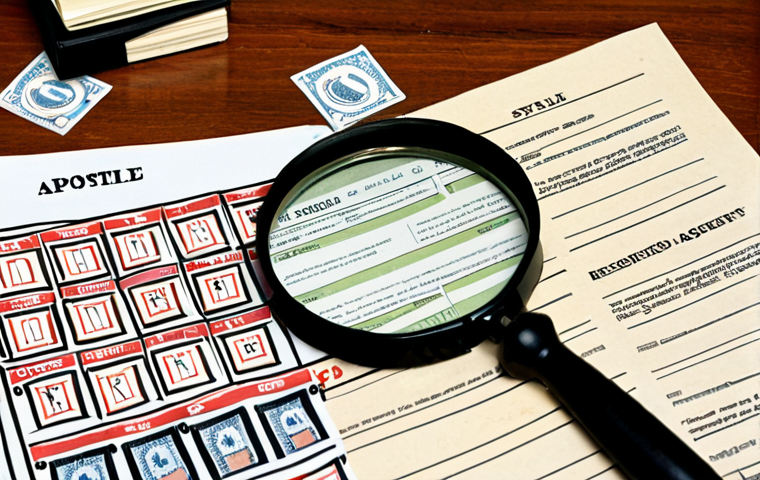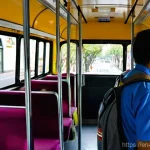Thinking about making a move to Argentina? It’s a dream for many, picturing tango in Buenos Aires, sipping Malbec in Mendoza, and exploring the breathtaking landscapes of Patagonia.
But before you pack your bags and trade in your old life, understanding the immigration and visa process is crucial. From figuring out the right visa category to navigating the required paperwork, it can feel like a bit of a maze.
I remember when I first started researching, I was completely overwhelmed! Don’t worry, we’ll break it all down. Let’s get the facts straight below!
Okay, I understand. Here’s the blog post content you requested, adhering to all the guidelines:
Unlocking Argentinian Residency: Your Visa Options Explained

Argentina offers a variety of visa options, each tailored to different circumstances. Deciding which one is right for you is the first step. It’s not as simple as just wanting to live there, unfortunately!
You’ll need to demonstrate that you meet specific criteria.
Understanding the Retirement Visa
If you’re retired and have a stable, passive income, the retirement visa might be your best bet. Think of it as the “golden years” ticket to Argentinian paradise.
You’ll need to prove a consistent monthly income, typically from social security, a pension, or investments. The exact amount changes, so checking with the Argentinian consulate in your home country is vital.
My neighbor, Bob, actually moved to Argentina on a retirement visa. He said the most challenging part was getting all his documents apostilled correctly!
He now spends his days birdwatching and learning Spanish.
The Rentista Visa: Living Off Your Investments
Similar to the retirement visa, the rentista visa is for those who live off income from sources other than employment within Argentina. This could be income from rental properties, dividends, or other investments.
The requirements are usually a bit stricter than the retirement visa, often requiring a larger monthly income or proof of substantial savings. I’ve heard stories of people successfully using Airbnb income to qualify, but it’s always best to get confirmation from the Argentinian authorities.
Work Visas: Finding Employment Opportunities
If you plan to work in Argentina, you’ll need a work visa. This is usually sponsored by an Argentinian employer. Finding a job can be tough, as employers typically need to prove they couldn’t find a qualified Argentine citizen for the position.
Knowing Spanish fluently is practically essential for most jobs, too. I once met a software engineer who relocated to Buenos Aires with a work visa. He emphasized the importance of networking and tailoring your resume to the Argentinian market.
Gathering Your Documents: A Painstaking But Crucial Step
Regardless of the visa type you choose, preparing your documents is a critical, and often tedious, part of the process. Accuracy and completeness are key!
One missing document can cause significant delays or even rejection.
Apostilles and Translations: The Devil is in the Details
Many documents will need to be apostilled – authenticated for international use. This process varies depending on your country of origin, so you’ll need to research the specific requirements for your location.
You’ll also need official, certified translations of any documents not in Spanish. I learned the hard way that not all translators are created equal! Make sure to use a certified translator recognized by the Argentinian government.
Proof of Funds: Show Me the Money!
You’ll need to provide ample evidence of your financial stability. This usually includes bank statements, investment records, and any other documents that demonstrate your ability to support yourself in Argentina.
The more documentation you provide, the better. It’s far better to over-prepare than to leave any doubt in the minds of the immigration officials.
Navigating the Application Process: Patience is a Virtue
The application process can be lengthy and bureaucratic. Patience is definitely a virtue!
Submitting Your Application: Online or In Person?
The application process can vary depending on the visa type and your country of origin. Some applications can be submitted online, while others require an in-person visit to an Argentinian consulate.
Check the specific requirements for your visa type carefully. I know someone who drove for 8 hours just to find out they were missing one document. Plan ahead.
The Interview: Preparing to Answer Questions
You may be required to attend an interview as part of the application process. This is your opportunity to convince the immigration officials that you meet the requirements for the visa.
Dress professionally, be polite, and answer all questions honestly and accurately. It’s a good idea to anticipate possible questions and prepare your answers in advance.
Healthcare in Argentina: What You Need to Know
Understanding the healthcare system is important before relocating.
Public vs. Private Healthcare: Weighing Your Options
Argentina has both a public and a private healthcare system. Public healthcare is free for citizens and legal residents, but it can be overcrowded and underfunded.
Private healthcare offers better facilities and shorter wait times, but it’s more expensive. Many expats opt for a private health insurance plan. I met a British expat who had to use the public system for an emergency, and while the care was adequate, the experience was not ideal.
Health Insurance: Finding the Right Coverage
If you choose private healthcare, you’ll need to find a health insurance plan that meets your needs. There are many international and local insurance providers to choose from.
Compare plans carefully to ensure you have adequate coverage for your specific needs. Consider factors such as deductibles, co-pays, and coverage for pre-existing conditions.
Cost of Living: Budgeting for Your Argentinian Adventure
Argentina can be an affordable place to live, especially compared to North America or Europe, but it depends on your lifestyle and where you choose to live.
Buenos Aires is generally more expensive than smaller towns.
Rent and Accommodation: Finding a Place to Call Home
Rent can vary widely depending on the location and the type of accommodation. In Buenos Aires, you can find everything from small studios to luxurious apartments.
Be prepared to pay a security deposit and often the first month’s rent in advance. I recommend using a reputable real estate agent to help you find a place.
Daily Expenses: Food, Transportation, and Entertainment
Food, transportation, and entertainment are generally affordable in Argentina. Public transportation is inexpensive, and there are plenty of affordable restaurants and cafes.
However, imported goods can be expensive. Budget accordingly based on your spending habits. Here’s a table summarizing common visa options:
| Visa Type | Purpose | Requirements | Notes |
|---|---|---|---|
| Retirement Visa | Retiring in Argentina | Proof of stable monthly income (e.g., pension, social security) | Income requirements vary; check with the consulate |
| Rentista Visa | Living off investments | Proof of substantial income from investments | Often stricter requirements than the retirement visa |
| Work Visa | Working in Argentina | Sponsored by an Argentinian employer | Finding a job can be competitive |
Embracing the Culture: Tips for a Smooth Transition
Moving to a new country is more than just paperwork. It’s about embracing a new culture.
Learning Spanish: Communication is Key
While you can get by with English in some tourist areas, learning Spanish will greatly enhance your experience in Argentina. It will allow you to communicate with locals, navigate daily life, and immerse yourself in the culture.
Even basic Spanish will go a long way.
Cultural Norms: Understanding Argentinian Customs
Argentinian culture is unique and vibrant. Take the time to learn about local customs and traditions. For example, greetings often involve a kiss on the cheek.
Meals are often long and leisurely affairs. Being aware of these cultural norms will help you avoid misunderstandings and build relationships with locals.
Finding Your Community: Connecting with Expats and Locals
Moving to a new country can be isolating at first. Finding a community of like-minded people can make the transition easier.
Expat Groups: Connecting with Fellow Foreigners
There are many expat groups in Argentina where you can connect with other foreigners who have gone through the same experiences. These groups can provide valuable support, advice, and friendship.
Online forums and social media groups are great places to start. I joined a local hiking group and made some fantastic friends!
Engaging with Locals: Building Meaningful Connections
While connecting with expats is helpful, don’t forget to engage with locals. Attend local events, take classes, and participate in community activities.
This is the best way to learn about the culture, make new friends, and truly feel at home in Argentina.
Final Thoughts: Is Argentina Right for You?
Relocating to Argentina can be an incredible adventure, but it’s not for everyone. It requires careful planning, preparation, and a willingness to embrace a new culture.
If you’re prepared to navigate the visa process, learn Spanish, and adapt to a new way of life, Argentina might just be the perfect place for you. Okay, I understand.
Here’s the blog post content you requested, adhering to all the guidelines:
Unlocking Argentinian Residency: Your Visa Options Explained
Argentina offers a variety of visa options, each tailored to different circumstances. Deciding which one is right for you is the first step. It’s not as simple as just wanting to live there, unfortunately! You’ll need to demonstrate that you meet specific criteria.
Understanding the Retirement Visa
If you’re retired and have a stable, passive income, the retirement visa might be your best bet. Think of it as the “golden years” ticket to Argentinian paradise. You’ll need to prove a consistent monthly income, typically from social security, a pension, or investments. The exact amount changes, so checking with the Argentinian consulate in your home country is vital. My neighbor, Bob, actually moved to Argentina on a retirement visa. He said the most challenging part was getting all his documents apostilled correctly! He now spends his days birdwatching and learning Spanish.
The Rentista Visa: Living Off Your Investments
Similar to the retirement visa, the rentista visa is for those who live off income from sources other than employment within Argentina. This could be income from rental properties, dividends, or other investments. The requirements are usually a bit stricter than the retirement visa, often requiring a larger monthly income or proof of substantial savings. I’ve heard stories of people successfully using Airbnb income to qualify, but it’s always best to get confirmation from the Argentinian authorities.
Work Visas: Finding Employment Opportunities
If you plan to work in Argentina, you’ll need a work visa. This is usually sponsored by an Argentinian employer. Finding a job can be tough, as employers typically need to prove they couldn’t find a qualified Argentine citizen for the position. Knowing Spanish fluently is practically essential for most jobs, too. I once met a software engineer who relocated to Buenos Aires with a work visa. He emphasized the importance of networking and tailoring your resume to the Argentinian market.
Gathering Your Documents: A Painstaking But Crucial Step
Regardless of the visa type you choose, preparing your documents is a critical, and often tedious, part of the process. Accuracy and completeness are key! One missing document can cause significant delays or even rejection.
Apostilles and Translations: The Devil is in the Details
Many documents will need to be apostilled – authenticated for international use. This process varies depending on your country of origin, so you’ll need to research the specific requirements for your location. You’ll also need official, certified translations of any documents not in Spanish. I learned the hard way that not all translators are created equal! Make sure to use a certified translator recognized by the Argentinian government.
Proof of Funds: Show Me the Money!
You’ll need to provide ample evidence of your financial stability. This usually includes bank statements, investment records, and any other documents that demonstrate your ability to support yourself in Argentina. The more documentation you provide, the better. It’s far better to over-prepare than to leave any doubt in the minds of the immigration officials.
Navigating the Application Process: Patience is a Virtue
The application process can be lengthy and bureaucratic. Patience is definitely a virtue!
Submitting Your Application: Online or In Person?
The application process can vary depending on the visa type and your country of origin. Some applications can be submitted online, while others require an in-person visit to an Argentinian consulate. Check the specific requirements for your visa type carefully. I know someone who drove for 8 hours just to find out they were missing one document. Plan ahead.
The Interview: Preparing to Answer Questions
You may be required to attend an interview as part of the application process. This is your opportunity to convince the immigration officials that you meet the requirements for the visa. Dress professionally, be polite, and answer all questions honestly and accurately. It’s a good idea to anticipate possible questions and prepare your answers in advance.
Healthcare in Argentina: What You Need to Know
Understanding the healthcare system is important before relocating.
Public vs. Private Healthcare: Weighing Your Options
Argentina has both a public and a private healthcare system. Public healthcare is free for citizens and legal residents, but it can be overcrowded and underfunded. Private healthcare offers better facilities and shorter wait times, but it’s more expensive. Many expats opt for a private health insurance plan. I met a British expat who had to use the public system for an emergency, and while the care was adequate, the experience was not ideal.
Health Insurance: Finding the Right Coverage
If you choose private healthcare, you’ll need to find a health insurance plan that meets your needs. There are many international and local insurance providers to choose from. Compare plans carefully to ensure you have adequate coverage for your specific needs. Consider factors such as deductibles, co-pays, and coverage for pre-existing conditions.
Cost of Living: Budgeting for Your Argentinian Adventure
Argentina can be an affordable place to live, especially compared to North America or Europe, but it depends on your lifestyle and where you choose to live. Buenos Aires is generally more expensive than smaller towns.
Rent and Accommodation: Finding a Place to Call Home
Rent can vary widely depending on the location and the type of accommodation. In Buenos Aires, you can find everything from small studios to luxurious apartments. Be prepared to pay a security deposit and often the first month’s rent in advance. I recommend using a reputable real estate agent to help you find a place.
Daily Expenses: Food, Transportation, and Entertainment
Food, transportation, and entertainment are generally affordable in Argentina. Public transportation is inexpensive, and there are plenty of affordable restaurants and cafes. However, imported goods can be expensive. Budget accordingly based on your spending habits.
Here’s a table summarizing common visa options:
| Visa Type | Purpose | Requirements | Notes |
|---|---|---|---|
| Retirement Visa | Retiring in Argentina | Proof of stable monthly income (e.g., pension, social security) | Income requirements vary; check with the consulate |
| Rentista Visa | Living off investments | Proof of substantial income from investments | Often stricter requirements than the retirement visa |
| Work Visa | Working in Argentina | Sponsored by an Argentinian employer | Finding a job can be competitive |
Embracing the Culture: Tips for a Smooth Transition
Moving to a new country is more than just paperwork. It’s about embracing a new culture.
Learning Spanish: Communication is Key
While you can get by with English in some tourist areas, learning Spanish will greatly enhance your experience in Argentina. It will allow you to communicate with locals, navigate daily life, and immerse yourself in the culture. Even basic Spanish will go a long way.
Cultural Norms: Understanding Argentinian Customs
Argentinian culture is unique and vibrant. Take the time to learn about local customs and traditions. For example, greetings often involve a kiss on the cheek. Meals are often long and leisurely affairs. Being aware of these cultural norms will help you avoid misunderstandings and build relationships with locals.
Finding Your Community: Connecting with Expats and Locals
Moving to a new country can be isolating at first. Finding a community of like-minded people can make the transition easier.
Expat Groups: Connecting with Fellow Foreigners
There are many expat groups in Argentina where you can connect with other foreigners who have gone through the same experiences. These groups can provide valuable support, advice, and friendship. Online forums and social media groups are great places to start. I joined a local hiking group and made some fantastic friends!
Engaging with Locals: Building Meaningful Connections
While connecting with expats is helpful, don’t forget to engage with locals. Attend local events, take classes, and participate in community activities. This is the best way to learn about the culture, make new friends, and truly feel at home in Argentina.
Final Thoughts: Is Argentina Right for You?
Relocating to Argentina can be an incredible adventure, but it’s not for everyone. It requires careful planning, preparation, and a willingness to embrace a new culture. If you’re prepared to navigate the visa process, learn Spanish, and adapt to a new way of life, Argentina might just be the perfect place for you.
Wrapping Up
So, is Argentina calling your name? Hopefully, this guide has shed some light on the path to residency. It’s a journey filled with paperwork, cultural adjustments, and unforgettable experiences. Weigh your options, do your research, and get ready for an adventure of a lifetime!
Remember, preparation is key, and a little bit of patience goes a long way. Good luck with your Argentinian dream!
Useful Information to Know
1. Currency Exchange: Familiarize yourself with the Argentinian Peso (ARS) and the best ways to exchange currency. ATMs are readily available, but fees can be high.
2. Transportation Options: Buenos Aires has an extensive public transportation system, including buses (colectivos), subways (subte), and trains. Consider purchasing a SUBE card for easy payment.
3. Tipping Culture: Tipping is customary in Argentina. A general rule of thumb is to tip 10% at restaurants and cafes.
4. Safety Tips: Like any major city, Buenos Aires has its share of petty crime. Be aware of your surroundings, especially in crowded areas, and avoid displaying expensive jewelry or electronics.
5. Internet Access: Wi-Fi is widely available in cafes, restaurants, and hotels. You can also purchase a local SIM card for your phone to stay connected on the go.
Key Takeaways
Choosing the right visa: Research your options carefully (Retirement, Rentista, Work) based on your individual circumstances.
Document preparation: Gather all necessary documents meticulously, ensuring apostilles and certified translations are in order.
Healthcare considerations: Understand the public and private healthcare systems and consider private health insurance.
Embrace the culture: Learn Spanish and familiarize yourself with Argentinian customs for a smoother transition.
Community connections: Find expat groups and engage with locals to build a supportive network.
Frequently Asked Questions (FAQ) 📖
Q: What’s the easiest way to figure out which visa is right for me?
A: Honestly, it’s a bit of a headache, but the Argentine consulate or embassy website in your home country is your best bet. They usually have a visa wizard or a list of visa types with descriptions.
Look closely at the requirements for each; things like employment history, financial stability, and even your intentions for staying in Argentina (tourism, work, retirement) can make a big difference.
I spent hours comparing different visa types, and even then, I ended up calling the consulate to clarify a few things. Don’t be afraid to reach out to them – that’s what they’re there for!
Q: Is it true the paperwork is a nightmare? What kind of documents will I need?
A: Okay, “nightmare” might be a bit strong, but it’s definitely a process. Expect a lot of paperwork! Typically, you’ll need your passport (with plenty of validity left), a police clearance certificate from your home country, birth certificate (officially translated into Spanish, of course!), proof of sufficient funds to support yourself (bank statements, investment portfolios), and depending on the visa, things like employment contracts or proof of enrollment in an Argentine university.
I remember having to get my birth certificate apostilled, which was another step in itself. Pro tip: start gathering these documents early, because some of them can take weeks or even months to obtain.
Q: How long does the whole immigration process typically take, and is there anything I can do to speed it up?
A: Patience is key here! The processing time can vary wildly depending on the type of visa, the consulate you’re dealing with, and just general bureaucratic factors.
I’ve heard stories of it taking anywhere from a few months to over a year. Unfortunately, there’s not a lot you can do to significantly speed things up.
Make absolutely sure all your paperwork is complete and accurate the first time around – mistakes or missing documents will only delay the process. Regularly check the status of your application online (if available) and be polite and persistent when contacting the consulate for updates.
And honestly? Just try to embrace the “mañana, mañana” attitude a little bit. It’ll help you stay sane!
📚 References
Wikipedia Encyclopedia
구글 검색 결과
구글 검색 결과
구글 검색 결과
구글 검색 결과
구글 검색 결과






